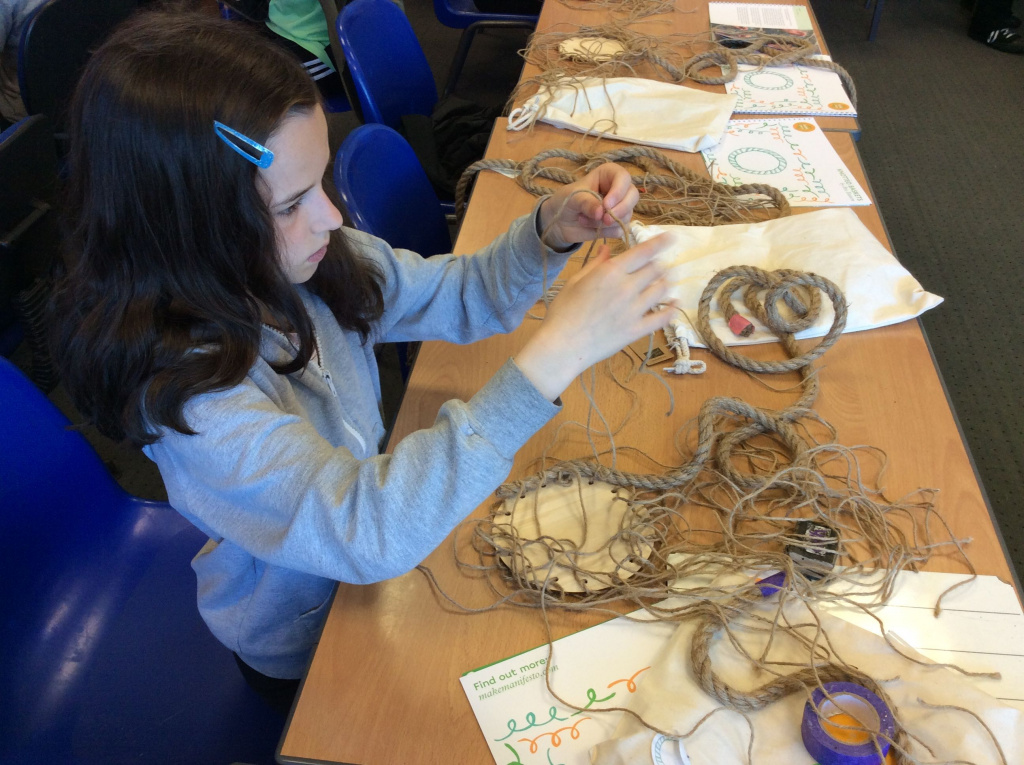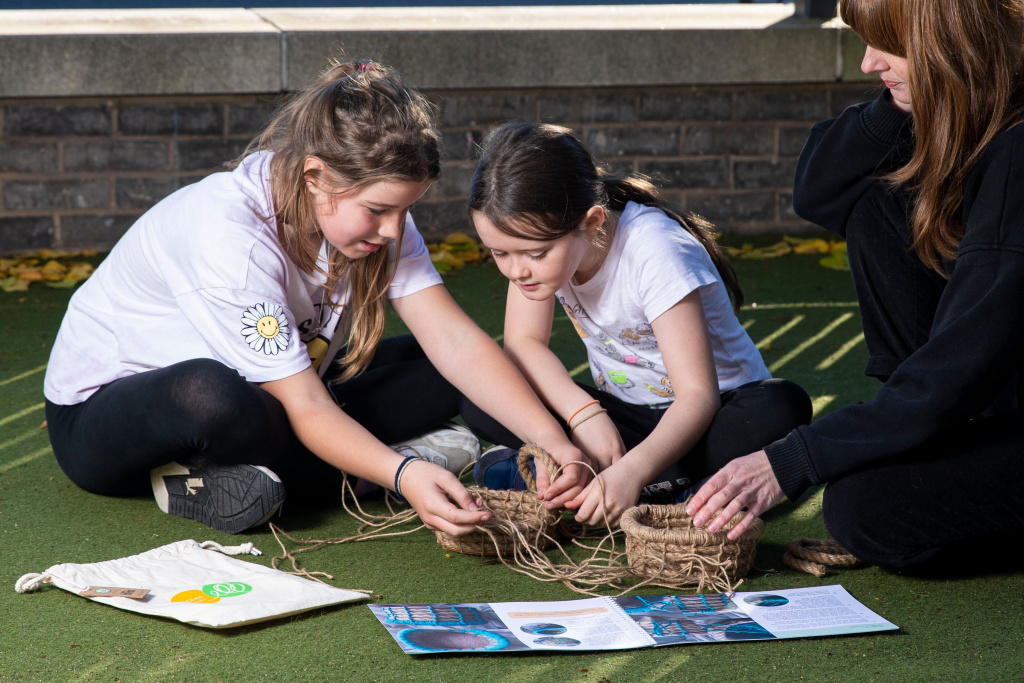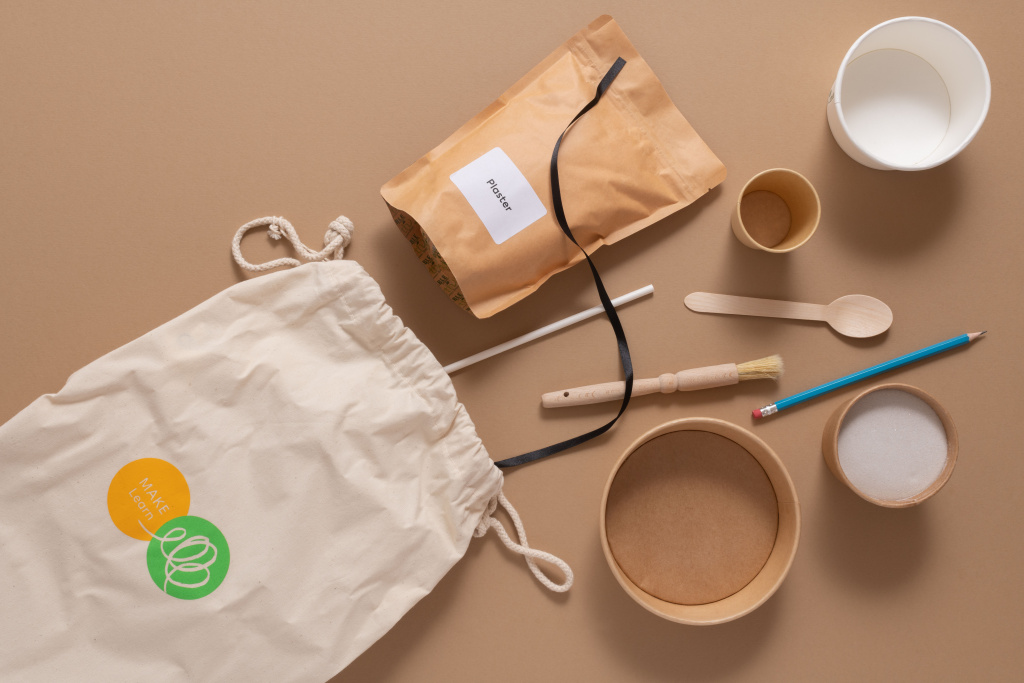
With an estimated 3.2 million consumers of craft, the appreciation for Scotland’s internationally renowned craft sector is widespread and growing. Its future however is not assured. The effects of the Covid-19 pandemic on makers’ incomes are likely to be felt for years to come, and Scotland’s craft heritage is critically endangered.
Education plays a significant role in the overall character of the sector, but to date little has been known about its make up. Participation in craft is widespread, but it is not equal. Craft and making in schools is currently reliant on the interests, experience, knowledge, and skills of individual teachers and it is significantly under resourced, with teachers increasingly spending their own money to buy materials and tools, and access professional development opportunities.
The loss of peripatetic art teachers in primary school, reduced teaching time in BGE Art & Design at secondary school, and competing priorities with ICT and digital technologies in the Technologies curriculum have all contributed to reduce craft and making in the classroom.
The Covid-19 pandemic has further exacerbated the gap in learning, with teachers highlighting the ‘heartbreaking’ lack of access to even basic craft materials for many pupils at home.
MAKE Learn is a new campaign led by MAKE and Craft Scotland, designed to review the provision and development of craft education within Scotland’s primary and secondary schools and beyond. The campaign’s ambition is to ensure that every young person is given the opportunity to learn through craft and to develop material skills. Through this work, MAKE Learn proposes the long-term value of teaching craft and making skills from early years through to further education and advocates for the inclusion of craft within Scotland’s education curriculum.
The value of learning about and putting craft skills into practice is well proven. The physical act of making helps children develop fine motor skills and manual dexterity and helps to improve hand eye coordination. Moving through the different stages of making, from concept and design to finished product is a valuable and enjoyable means of enabling children to develop problem-solving and decision-making skills which are fundamental life skills.
A pilot project to bring craft back into the classroom was delivered within schools earlier this year and ran alongside the development of the ‘Craft and Making Education in Scotland Today’ report, launched on 6 October 2021, which highlights the long-term value of teaching craft as part of the schools curriculum and was recently shared with Scottish Ministers and key policy makers for education and schools.
The report promotes crafts wellbeing and emotional resilience benefits; its role in understanding culture, identity and heritage; its capacity as a driver for ethics, values and skills to advance the green economy of the future; and its power as a tool to unlock learning across the curriculum.
It calls for a need to reverse the dematerialisation of education in Scotland’s schools – reintroducing teaching using tactile materials, alongside a focus on technology, and raising awareness of the benefits of craft teaching. The report, authored by Rosemary James-Beith, also advocates for better resources for teaching craft in classrooms and a national strategy for material skills development in schools – to ensure that we can sustain and grow Scotland’s workforce for an industry that currently contributes over £70 million to the Scottish economy.
Key findings from the report show that participation in craft is widespread, but it is not equal. Young adults aged 16-24 are least likely to participate in craft making, and those from less deprived areas are 50% more likely to have taken part in craft. Craft and making in schools is also not supported by national policy or coordinated resources, and over half of teachers (52% of those surveyed) felt that craft teaching was not a priority. In addition, craft is significantly under-resourced. 88% of teachers surveyed said that access to resources for materials and tools was a barrier to teaching craft in the classroom.

These findings were delivered alongside the publication of nine MAKE Learn case studies, and an interactive craft education map for Scotland. The case studies (downloadable at https://www.makemanifesto.com/make-learn/case_studies/), detail exemplar initiatives, projects, and programmes being produced across Scotland despite current challenges. Together they show that craft and making is being delivered in ambitious ways, driving engagement in learning, building transferable life skills, contributing to attainment and employability, preserving Scotland’s material heritage, developing the future craft sector, and supporting the next generation to respond to the climate emergency. The map (available to view at https://www.makemanifesto.com/make-learn/map/) is a new online directory that aims to make visible this network of craft and making education activity taking place across the country.
Despite this growing participation, craft activity in education is fragile. Projects remain small-scale, locally focused, and short-term, leaving little behind in terms of documentation or evaluation. Access to funding and resources is seen as the biggest barrier or challenge to developing craft education in Scotland by makers.
The Pilot Schools Project
Against this backdrop, the Pilot Schools Project, led by maker Soizig Carey, was developed as a model for craft education in the classroom, with the potential to be delivered nationally and to strategic aims. Its goal was to address key gaps in participation, teaching confidence and materials and resources accessibility, and to measure the proposed impact of strengthening the craft sector in Scotland across the key themes of Tackling inequalities; Learning and working; Cultural and strong communities and Building skills and practice. For the project, Soizig invited makers Deirdre Nelson, Stefanie Cheong and Eve Eunson, to develop three craft activities, each exploring; traditional craft practice in Scotland; materials and their connection to place and the natural world; and the circular economy (available to download in English, Polish and Urdu at https://www.makemanifesto.com/make-learn/resources/).
Architect and Designer-Maker Eve Eunson was born and raised on Fair Isle, Shetland, and studied Art and Architecture in Aberdeen. In 2018, with no previous woodworking experience and little knowledge of vernacular furniture she began an ambitious research project to trace, survey and recreate the traditional chairs of her native isle. Through the Fair Isle Chairs Project, the Heritage Crafts Association became aware of the precarious nature of the future of the Fair Isle Strawback Chair and listed the technique on their Red List of Critically Endangered Crafts. Inspired by Fair Isle strawback chairs, Eve’s ‘Knotted Baskets’ guide shows how to make your own basket using the same knotting and binding technique. In developing the activity, Eve commented:
“I hope that young people will be inspired by the story behind the basket making activity and that it creates an awareness of our culture, endangered crafts and traditional techniques. Basketry is a great lesson in patience and resourcefulness, showing that you can easily make items that are both beautiful and useful from ordinary materials – if you just use a little imagination and give things a try! Traditional crafts are not always difficult; they often just need a little time. We live in a faster-paced world than our ancestors, which isn’t always a good thing – practicing craft teaches us to slow down and take the time to create.”
Stefanie Cheong is an Artist Jeweller from Fife, whose work is underpinned by ethical making that considers processes, industry practices and materials. Stefanie works predominantly in Fairtrade and recycled metals, combined with rock, which she sources from across Scotland. She uses traditional stone cutting techniques with a contemporary aesthetic often with interchangeable elements that encourage the wearer to consider sustainable design. Stefanie’s guide ‘Making Impressions’ explores materials and their connection to the man made and natural world and shows how to cast your own future fossil using natural materials. Focusing on craft’s unique position as a proponent of the policies of the green economy and its relationship to creativity, Stefanie’s activity introduces the anthropocene to primary age children:

“This activity challenges children to learn about natural and man-made materials and asks them to imagine what a future fossil may look like, considering the impressions we as humans could leave behind on Earth.”
Deirdre Nelson is an Irish artist-maker creating textiles which explore humour, place and social history. She partners traditional techniques with contemporary processes such as digital print, to create work which is not only exhibited but presented through artist residencies and within education and community projects. Deirdre’s practice has been aptly described as ‘quiet activism’, advocating for the circular economy and environmental and social justice. ‘Care not Consume’ is a series of activities designed by Deirdre, focused on the circular economy and mending textiles so we can keep them for a long time. On the importance of including craft in the curriculum, Deirdre highlights its crucial role as a tool in explaining ideas on sustainability:
“The circular economy recognises that the world’s resources are finite and need to be protected. By employing craft skills in the classroom, we can teach Scotland’s young people, not only about transferable and practical hand-skills, but also about how to think about waste as a resource that can be repaired, redesigned and reused into new products.”
For the pilot, the activities were taught within the classroom (to P5–7 children and aimed at Broad General Education level) without the presence of the craft makers, due to Covid-19 restrictions. Instead, each guide came with a pack of materials and tools, and an accompanying film. The film introduced the craft maker, the skill, and wider learning contexts alongside providing instruction for the activity in tandem with a printed guide. The activities and these resources intended to provide children with an imaginative craft challenge; encourage them to explore traditional and / or contemporary craft processes, try out different materials and learn new skills. They were also designed to be suitable and accessible to different learning levels and skills; and to be delivered by a teacher, or independently (with guided information) over three one hour sessions. The guides are also intended to be adaptable for use beyond the classroom, at home or in other settings, and can be downloaded for free from the MAKE Manifesto website (watch the films and download the guides at https://www.makemanifesto.com/make-learn/pilot-schools-project/).
MAKE Learn in the classroom
Over 400 children, across six primary schools in Glasgow City and Argyll and Bute council regions, took part in the MAKE Learn pilot, with each classroom undertaking their selected activity in term three of the academic year. The involved schools included Rothesay Joint Campus, North Bute Primary School and St Andrew’s Primary School in Bute and St Benedict’s Primary School (Easterhouse), Royston Primary School (Royston), and Glendale Gaelic Primary School (Pollokshields) in Glasgow. Each MAKE Learn activity explored teaching themes through craft and making: building creativity, skills development and learning and meeting CfE second level benchmarks in the Expressive Arts, Health and Wellbeing, Sciences and Technologies.
Elspeth McCoull, Head Teacher at Glendale Gaelic Primary School commented: “At a time when children are spending increasing amounts of time on screens, particularly as a result of home schooling during the pandemic, it is hugely valuable for schools to have space in the curriculum to explore physical, tactile materials. Craft learning is also a wonderful way to give pupils a context for wider discussions about our culture, history and sustainability of resources. At the school, we look forward to further developing these workshops as part of our Gaelic language teaching and connecting with craft practitioners from older generations of families and communities near our school.”
This view on hand skills was echoed across the teacher’s responses to the project, alongside agreement on craft’s practical role in developing material knowledge and transferrable problem solving and life skills, all of which can lead to wider employability. On delivering Deirdre Nelson’s ‘Care Not Consume’ activity, a teacher at Glendale Gaelic Primary said:
“Encouraging creativity is important as helps young people develop their own ideas and practical skills. Learning about making can serve as an anchor for so many other curricular elements.”
Whilst a teacher at St Benedicts Primary School, where Stefanie Cheong’s ‘Making Impressions’ activity was delivered, commented: “The activities were inclusive so all learners could take part and experience success, building their confidence. They also enjoyed helping each other and developed their empathetic skills.”
In turn, feelings of achievement were recorded within comments from the pupils themselves: “We all completed our activity and it made me feel like I’ve just learnt something new in my life and I can actually use it. I felt so proud of myself when I finished.”
Pupil, St Andrew’s Primary School
“I was very proud of myself when I saw what I had made!”
Pupil, St Benedict’s Primary School
These connections between craft and making and learning, attainment, and employability can and should contribute meaningfully to every young person’s learning experience, but they are underdeveloped in Scotland’s cultural and education policy. Increasing awareness and appreciation for craft and making education’s contributions will support it to find a stronger position within the curriculum – ensuring a more equitable distribution of craft and making’s known benefits to all learners in Scotland.
Irene Kernan, director Craft Scotland, Catriona Duffy, and Lucy McEachan, co-founders MAKE.
MAKE | Learn is a partnership between Panel (the founders and current custodians of MAKE) and Craft Scotland, and is funded by Creative Scotland as part of their targeted funding to strengthen the craft sector in Scotland.
‘Craft and Making Education in Scotland Today’ by Rosemary James-Beith is a set of three MAKE Learn research documents: A Research Report, Key Findings and Recommendations.
The MAKE Learn Pilot Project for Schools was developed and delivered by Soizig Carey.
To find out more, read the report and download the resources, visit https://www.makemanifesto.com/make-learn/
craftscotland.org | makemanifesto.com
Register for free
No Credit Card required
- Register for free
- Free TeachingTimes Report every month